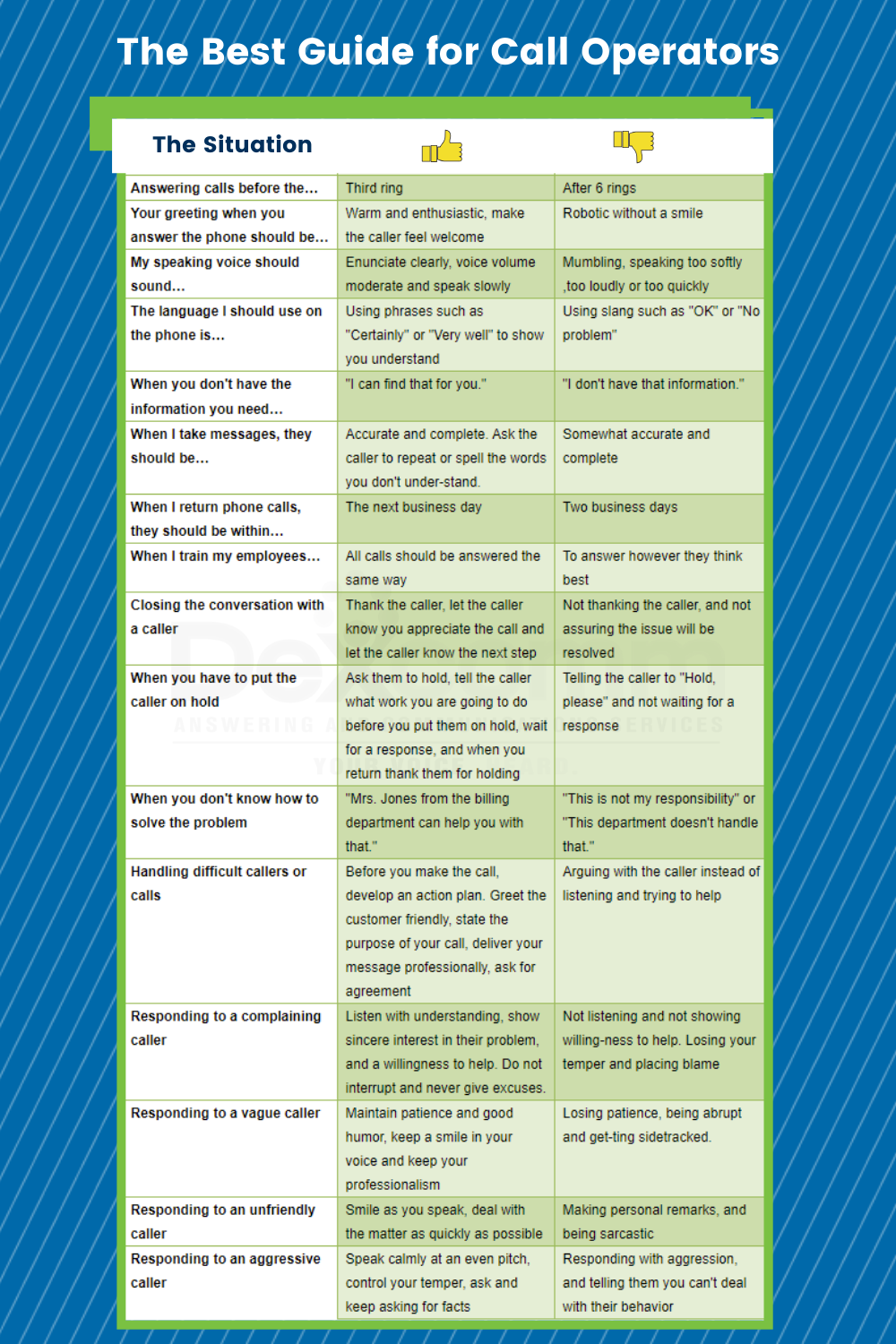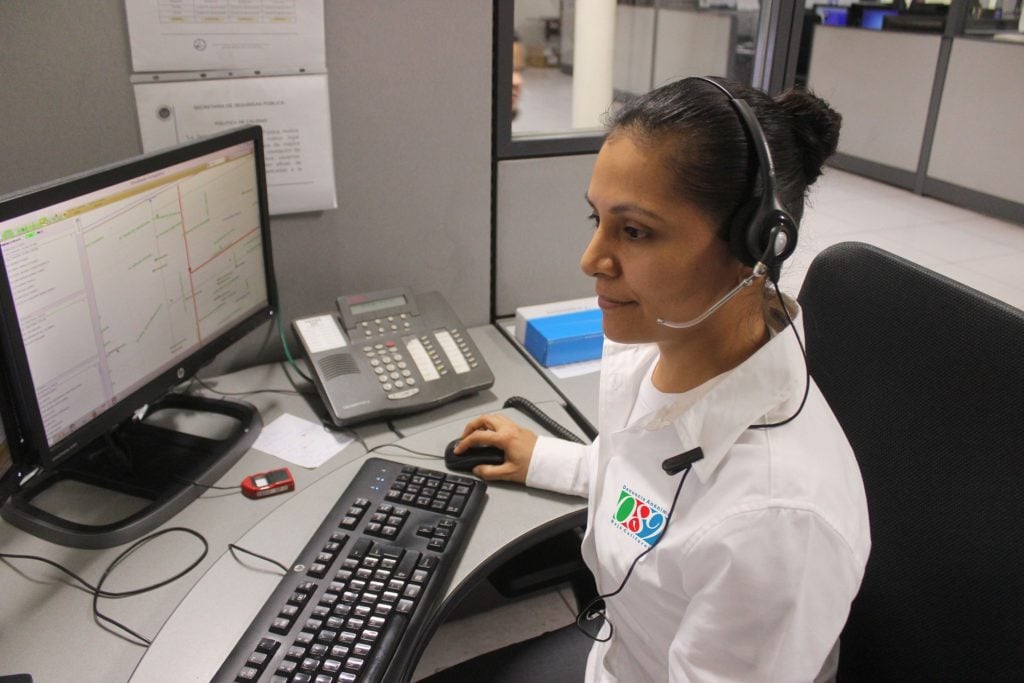All Categories
Featured
Table of Contents
- – What The Best Outsource Answering Services In T...
- – What Is The Best How Do Answering Services Wor...
- – What Is The Best How Do Answering Services Wor...
- – What's The Best The Ultimate Guide To Telepho...
- – Best What Is An Answering Service? You Can Buy
- – What Is The Best What Is An Answering Servic...
What The Best Outsource Answering Services In The Usa - Start From $11/hr Brand To Buy
This device and its followers were developed by Sava Jacobson, an electrical engineer with a private consulting service. While early voice mail utilized magnetic tape innovation, the majority of contemporary devices utilizes solid state memory storage; some gadgets utilize a mix of both, with a solid-state circuit for the outbound message and a cassette for the inbound messages.
"toll conserving" listed below) (phone answering). This is beneficial if the owner is screening calls and does not wish to speak to all callers. In any case after going, the calling celebration needs to be informed about the call having been addressed (most of the times this starts the charging), either by some remark of the operator, or by some greeting message of the little, or resolved to non-human callers (e.
This holds particularly for the Little bits with digitally saved welcoming messages or for earlier machines (prior to the rise of microcassettes) with an unique limitless loop tape, separate from a second cassette, devoted to recording. There have been answer-only devices with no recording capabilities, where the greeting message needed to inform callers of a state of existing unattainability, or e (virtual telephone answering).
What Is The Best How Do Answering Services Work? Company?

about accessibility hours. In taping Littles the welcoming usually includes an invite to leave a message "after the beep". A voice mail that uses a microcassette to record messages On a dual-cassette answerphone, there is an outbound cassette, which after the defined variety of rings plays a pre-recorded message to the caller.

Single-cassette voice mail include the outgoing message at the start of the tape and incoming messages on the remaining space. They initially play the announcement, then fast-forward to the next offered space for recording, then record the caller's message. If there are lots of previous messages, fast-forwarding through them can cause a considerable hold-up.
This beep is often referred to in the greeting message, asking for that the caller leave a message "after the beep". Littles with digital storage for the recorded messages do not reveal this delay, of course. A TAD might use a push-button control center, where the answerphone owner can sound the home number and, by entering a code on the remote telephone's keypad, can listen to tape-recorded messages, or erase them, even when away from house.
What Is The Best How Do Answering Services Work? Today

Therefore the machine increases the number of rings after which it addresses the call (typically by 2, resulting in four rings), if no unread messages are presently kept, but responses after the set variety of rings (normally 2) if there are unread messages. This allows the owner to discover whether there are messages waiting; if there are none, the owner can hang up the phone on the, e.
Some devices likewise enable themselves to be from another location triggered, if they have been changed off, by calling and letting the phone ring a specific big number of times (typically 10-15). Some service suppliers abandon calls already after a smaller sized number of rings, making remote activation impossible. In the early days of Little bits a special transmitter for DTMF tones (dual-tone multi-frequency signalling) was regionally required for remote control, given that the previously used pulse dialling is not apt to convey appropriate signalling along an active connection, and the dual-tone multi-frequency signalling was implemented stepwise.
Any inbound call is not identifiable with regard to these residential or commercial properties in advance of going "off hook" by the terminal equipment. So after going off hook the calls should be switched to appropriate devices and just the voice-type is immediately accessible to a human, but possibly, nevertheless ought to be routed to a TAD (e.
What's The Best The Ultimate Guide To Telephone Answering Services Brand
What if I informed you that you do not need to in fact get your device when addressing a customer call? Another person will. So hassle-free, ideal? Addressing call does not require somebody to be on the other end of the line. Effective automated phone systems can do the technique simply as effectively as a live representative and sometimes even much better.
An automatic answering service or interactive voice action system is a phone system that communicates with callers without a live person on the line - local phone answering service. When business utilize this technology, consumers can get the answer to a concern about your organization merely by utilizing interactions set up on a pre-programmed call flow.
Although live operators update the client service experience, numerous calls do not require human interaction. A basic recorded message or instructions on how a consumer can obtain a piece of information generally solves a caller's instant need - phone answering service. Automated answering services are a simple and effective way to direct incoming calls to the best person.
Best What Is An Answering Service? You Can Buy
Notice that when you call a company, either for assistance or item query, the very first thing you will hear is a pre-recorded voice greeting and a series of options like press 1 for customer care, press 2 for inquiries, and so on. The pre-recorded alternatives branch off to other choices depending on the customer's choice.
The phone tree system helps direct callers to the ideal individual or department utilizing the keypad on a smart phone. In some instances, callers can utilize their voices. It's worth keeping in mind that auto-attendant options aren't restricted to the ten numbers on a phone's keypad. Once the caller has actually picked their first choice, you can develop a multi-level auto-attendant that utilizes sub-menus to direct the caller to the right sort of assistance.
The caller does not have to communicate with a person if the auto-attendant phone system can manage their issue. The automated service can path callers to an employee if they reach a "dead end" and need assistance from a live representative. It is costly to work with an operator or executive assistant.
What Is The Best What Is An Answering Service? The Ultimate Guide - Cms For The Money
Automated answering services, on the other hand, are considerably cheaper and offer substantial expense savings at an average of $200-$420/month. Even if you don't have actually dedicated staff to manage call routing and management, an automated answering service improves efficiency by permitting your team to concentrate on their strengths so they can more effectively invest their time on the phone.
A sales lead routed to customer support is a lost shot. If a consumer who has product questions reaches the wrong department or gets insufficient responses from well-meaning workers who are less trained to deal with a specific kind of question, it can be a reason for frustration and dissatisfaction. An automated answering system can reduce the number of misrouted calls, thus helping your employees make much better use of their phone time while maximizing time in their calendar for other tasks.
With Automated Answering Systems, you can produce a customized experience for both your personnel and your callers. Make a recording of your main greeting, and simply upgrade it regularly to show what is going on in your company. You can develop as lots of departments or menu choices as you desire.
Table of Contents
- – What The Best Outsource Answering Services In T...
- – What Is The Best How Do Answering Services Wor...
- – What Is The Best How Do Answering Services Wor...
- – What's The Best The Ultimate Guide To Telepho...
- – Best What Is An Answering Service? You Can Buy
- – What Is The Best What Is An Answering Servic...
Latest Posts
Trusted Medical Answering Service – South East Queensland
Exceptional Virtual Phone Answering – Perth
24/7 Answering Service Near Me
More
Latest Posts
Trusted Medical Answering Service – South East Queensland
Exceptional Virtual Phone Answering – Perth
24/7 Answering Service Near Me